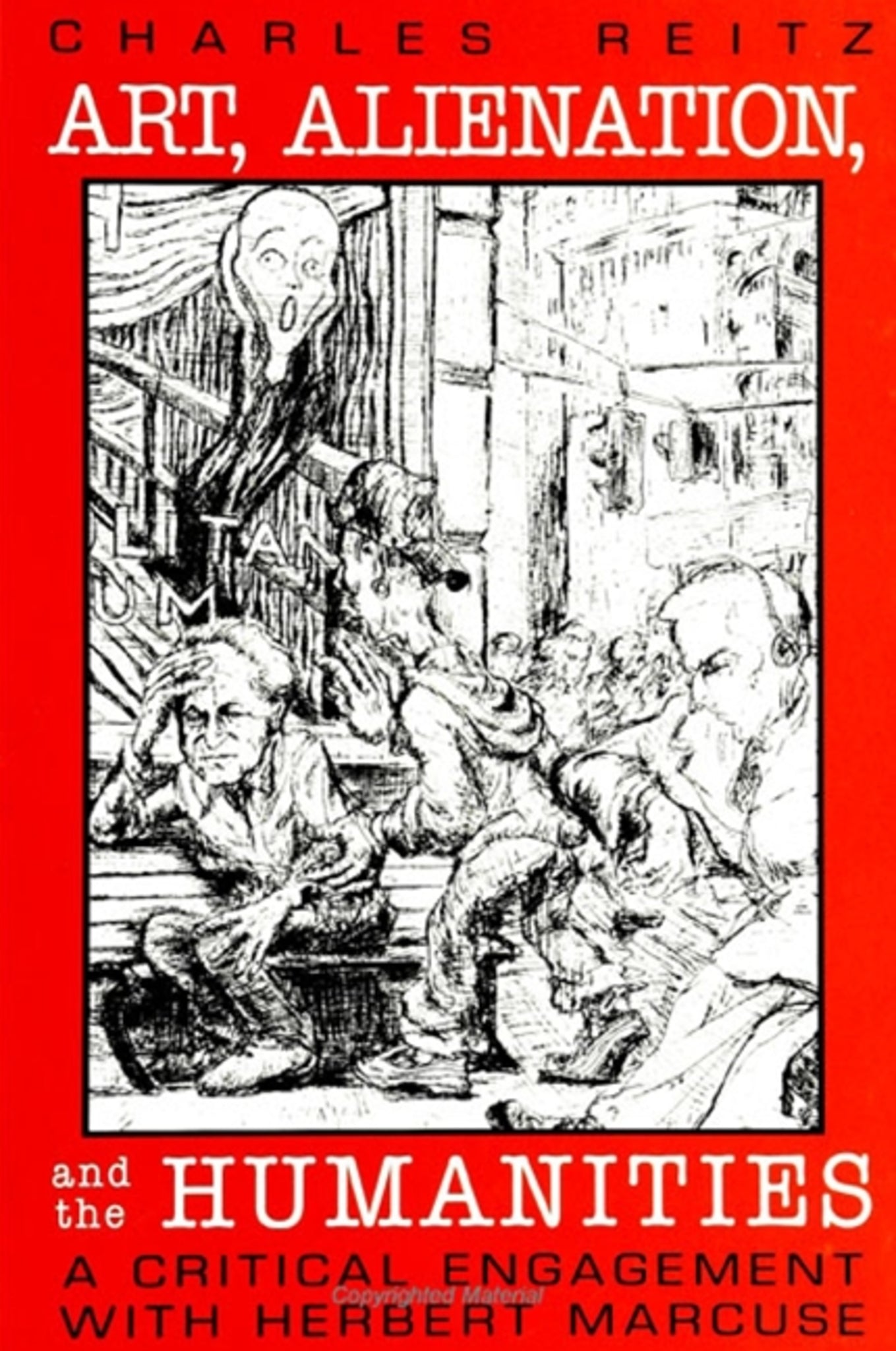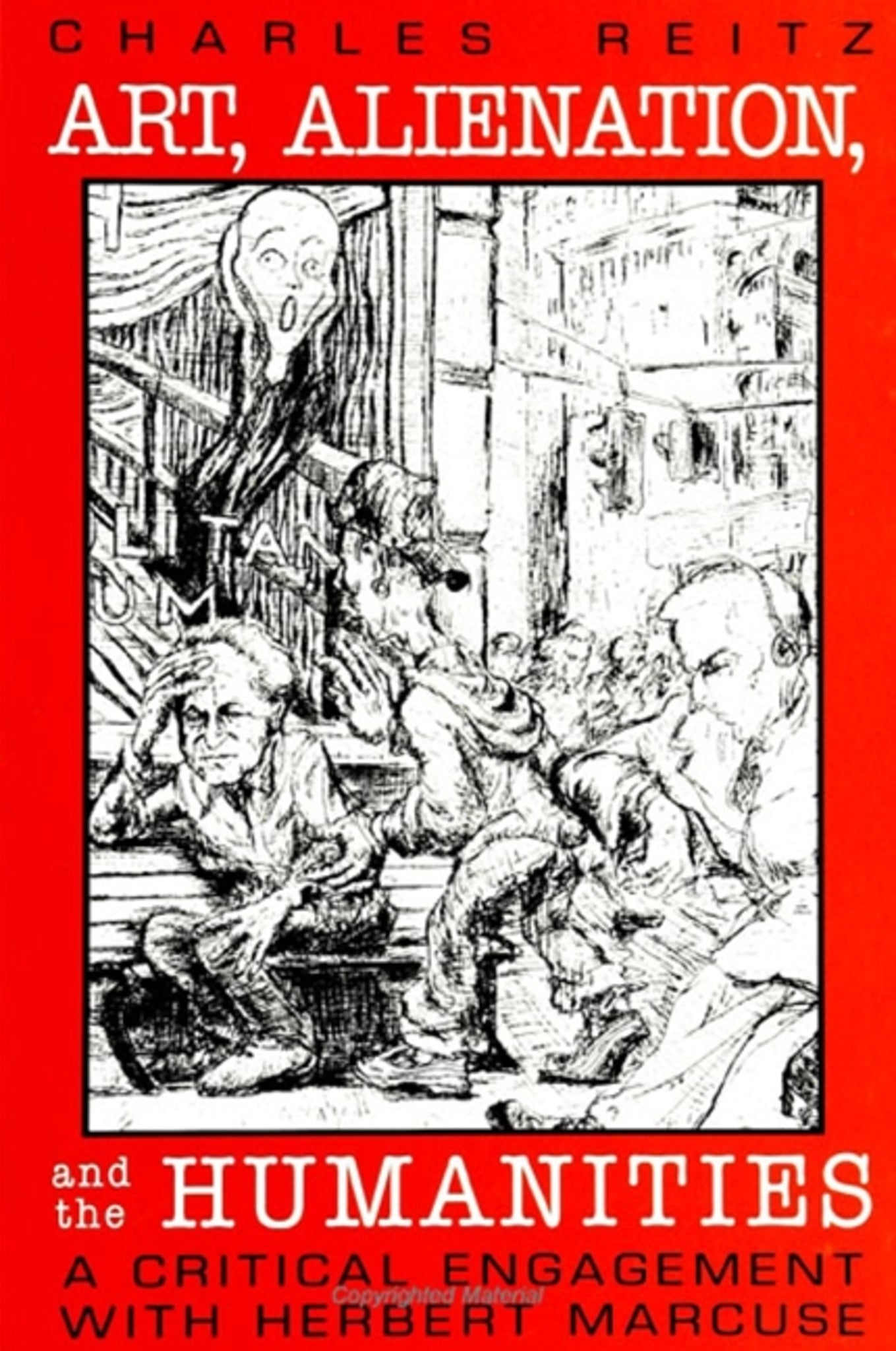We're sorry. An error has occurred
Please cancel or retry.
Art, Alienation, and the Humanities

Some error occured while loading the Quick View. Please close the Quick View and try reloading the page.
Couldn't load pickup availability
- Format:
-
10 February 2000

Illustrates how Marcuse's theory sheds new light on current debates in both education and society involving issues of multiculturalism, postmodernism, civic education, the "culture wars," critical thinking, and critical literacy.
Winner of the 2002 American Educational Studies Association's Critics' Choice Award
By examining the aesthetic, social, and educational philosophy of Herbert Marcuse, the author documents and demonstrates the structure and movement of Marcuse's thought on art, alienation, and the humanities. Reitz's work stresses the centrality of Marcuse's argument that the arts and humanities may act as disalienating educational forces.


"Charles Reitz's study of Marcuse is one of the more important works on Marcuse of the last decade. Reitz is the first to connect studies of Marcuse's concept of art with conceptions of aesthetic education and the only one who connects Marcuse's thought more broadly with the problematics of education. The result is an original and engaging study of Marcuse's work that provides fresh insight into one of the most important thinkers of our century." — Douglas Kellner, author of Herbert Marcuse and the Crisis of Marxism
"Reitz's interpretation of Marcuse's work within the context of the modernist and postmodernist struggle to find solid ground and/or signposts within the debris of various putative certainties, and quests for certainty, give his subject's work fresh meaning. The perilous flight: from the dangers of reductionism, iron-clad causalities, and bogus scientism in what some consider inherent in orthodox Marxism, to a retreat to idealistic forms/universals and quasi-pure aesthetics, is laid bare in Reitz's Marcuse." — Richard Brosio, author of A Radical Democratic Critique of Capitalist Education
"The emphasis on Nietzsche, Dilthey, Heidegger, and early Lukacs, the discussion of the history of educational theory from Plato to Kant, the firm grasp of the difference between the dialectical approaches of Hegel and Marx by contrast with the later trend of social-historical analysis stemming mainly from Nietzsche and Dilthey—all of this written with utmost clarity and lack of jargon—makes this an outstanding work of philosophical scholarship." — James Lawler, State University of New York at Buffalo
Acknowledgments
Author's Note
1. Recalling Marcuse: Art, Alienation, and the Humanities
2. Literary Art and Bildung: Marcuse's Early Works
Der deutsche Kunstlerroman: The German Artist Novel
The Artist's Education from Alienation to Maturity
Marcuse and Dilthey
3. The Emergent Critical Theory of Alienation: The Laws of Beauty versus the Law of the Thing
Alienation as Verdinglichung: Cornerstone of Critical Theory
4. The Emergent Critical Theory of Art: Marcuse's Middle Period
Art and The Actualization of Utopia
5. Marcuse's Aesthetic Ontology
The "Aesthetic Dimension" in Eros and Civilization
The Rationality of Art and the Denial of Things
6. Imagination, Death, and Educational Reminiscence
7. Alienation and Art in the One-Dimensional Society
Art and the Potential for Protest
8. Art Against Alienation: Aesthetic Education and Political Praxis
The Great Refusal and Lebensphilosophie
Education and Social Change
9. Art as Alienation: Marcuse's "Turn" and Return
10. The Future—Liberating the Critical in Critical Theory
The Irony of the Beautiful Soul of Herbert Marcuse
The Dialectics of Liberation and Learning
A Concluding Backward Glance
Appendix: Charter 2000: A Comprehensive Political Platform
Notes
Glossary
Bibliography
Name Index
Subject Index



